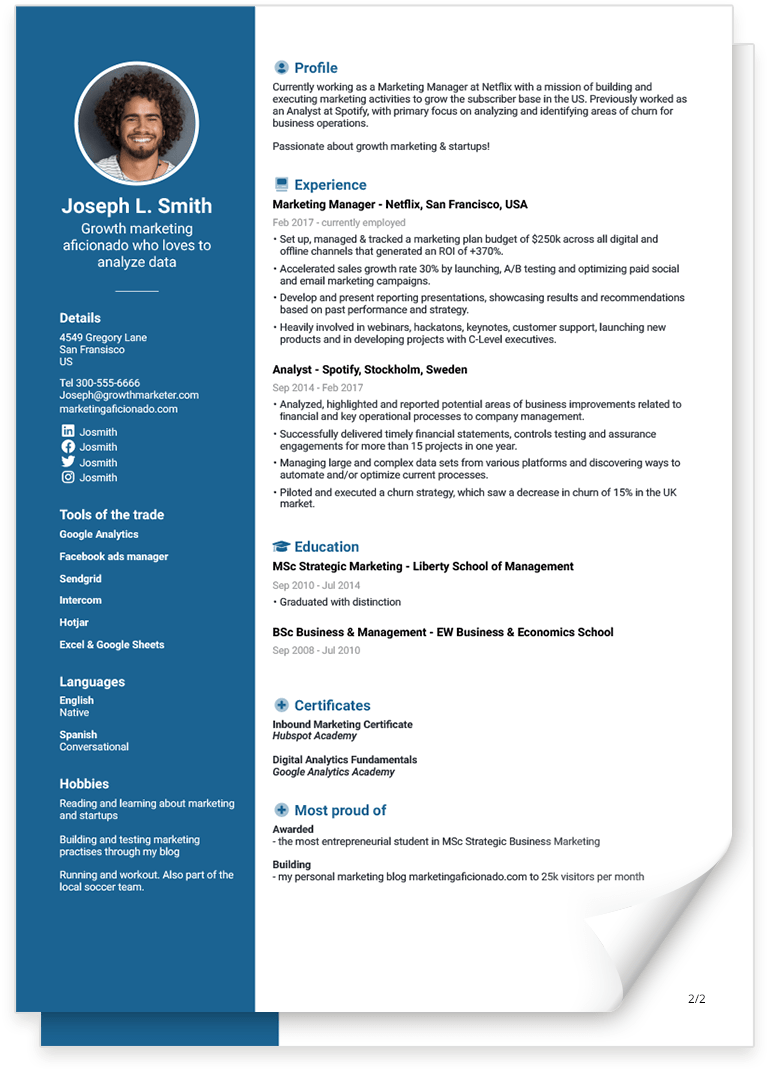20 Best Questions to Ask an Interviewer [2025]
![20 Best Questions to Ask an Interviewer [2025]](https://jofibostorage.blob.core.windows.net/blog/InterviewQuestions1-cover.jpg)
Hooray! You’ve been called into a job interview. This means that you’ve done an excellent job at creating your tailored resume so kudos on that. Your work isn’t over though. Now you need to prepare for your interview and that includes coming up with some intelligent questions to ask your interviewer.
You see, a job interview is a two way street. It’s not only about them finding out if you’re a perfect fit for the company. It’s also about you finding out if they’re the perfect fit for you. They expect you to ask them questions. If you end up just sitting there without anything to add to the conversation you can be sure they’ll find someone else. Because they’ll think you’re not interested. Let’s not let that happen to you!
You should prepare at least two questions to ask your interviewer at the end of your job interview. These questions need to show your interest in the company and your drive to excel in the position. Choose wisely and make sure you have a couple of backup questions in place in case your preferred questions get answered during the interview.
Are you ready? Here are the best questions you can ask an interviewer after the job interview.
Best questions to ask an interviewer
1. What would a typical day for me in this position look like?
When you ask the interviewer this question it’s your chance to learn more about day-to-day life when working in the position you’re interviewing for. This will help you decide if you can really see yourself in the role. It will also help you know which skill sets are needed to fulfill the position. And when you ask it the way we have formulated it, where you personalize the question by adding “for me”, you allow the hiring manager to see you in the role. This is a psychological trick that lets the interviewer visualize you in the role and it’s hard to let go of that image.
2. What do you expect me to accomplish during the first three months?
It’s important to clarify expectations. This question is great for just that.
3. How about the first six months?
Typically the first three months in a new position is a testing period to see how well you match. Then the real work begins and expectations will rise. Make sure you’re comfortable with theirs.
4. What are the biggest challenges at the moment that I might face?
Asking this question shows you’re interested in the company and its product(s). It shows you’re driven and think ahead. You’ll be able to figure out which skills you possess that can help out and explain how.
5. What are the biggest opportunities at the moment that I would be able to work on?
Basically, the same applies to this question as to the one above. A company faces both challenges and opportunities and knowing them will give you a headstart compared to other candidates.
6. How is the onboarding process for new employees?
The onboarding process is a great way to figure out how the company takes care of its employees. It also shows you’re genuinely interested in working for the company and want to know more about their processes.
7. How would you describe the overall culture of the company?
One of the reasons to even hold job interviews is to find out if you’re a good fit for the position and the company. But it also goes the other way around. Is the company a good fit for you? One way to find out is to know more about the company culture.
8. How would you describe the overall management philosophy of the company?
There can be huge differences in the management philosophies and styles of a given company. Make sure the one you're interviewing with has a management style that you're comfortable with.
9. What’s your favorite part of working here?
Getting the answer to this question will no doubt give you great insight into the best parts of working in that company. You can compare it to what you value the most from other places you've worked.
10. What’s your least favorite part of working here?
Likewise, this question will let you know what the downside of working in the company might be. However, people are different and enjoy different things so one person’s least favorite might be another person’s favorite.
11. How do employees socialize in their free time?
If you’re the kind of person who likes to socialize with your colleagues, this question might be relevant. It will let you know if you’ll fit in with the rest of the people there.
12. How does the company go from idea to execution?
Asking this question at the end of a job interview will definitely leave a good and strong impression with the interviewer(s). It shows you know how important it is to be able to execute on your ideas and it shows you’ll be taking initiative in the position.
13. How would you feel if I were to take initiative to bring up new ideas?
This question will also show the interviewer(s) that you mean business. You wouldn’t be asking this question if you weren’t the type of person who can come up with great ideas and want to act on them.
14. How is the company’s policy regarding training their employees?
It’s important that you keep developing and honing your skills. It should also be important to your future workplace. This question shows that you care about developing further and evolving your skills and knowledge.
15. Where would I be able to add the most value?
Nail your interview performance by asking this question at the end of your interview (if it feels natural). It will show you’re keen on adding value to the company and that you’re aware of the importance of contributing.
16. Which metrics or goals would I be measured against to evaluate my success?
When asking this question you’ll reveal you’re even more impressive than they thought. You show them that you know how important it is to measure performance in order to be successful. You also show them that you’re not afraid of being measured.
17. How do you give feedback?
Giving and not least receiving feedback is essential in a work environment. How a company does this will differ though so it’s a great way to find out if the company and you are a good match.
18. How do I share information and documents with my colleagues?
Knowledge and information sharing is vital for a company and a team to thrive. There are many ways a company chooses to do this and of course it also depends on the line of work they do. The important thing here is to discover if the way the company shares information and documents will resonate well with you.
19. How do you handle it when an employee makes a mistake?
Everybody makes mistakes now and then. It’s important that a company values its employees, also when they make a mistake. Knowing how they usually handle this will let you know if you think you’ll thrive there or not. It doesn’t matter if you rarely make any mistakes. It’s good to know how it’s handled.
20. What are the next steps in your hiring process?
Only ask this in the very very end when you don’t have any other questions left. This is a good finishing question and you’ll come out the other side of the interview strong. You’ll be able to gauge the approximate timeline of the process so you can follow up appropriately.
Finishing thoughts
We’ve reached the conclusion to this article and I hope you’re feeling inspired and confident to prepare for your next job interview. If you want to be even more prepared, check out our article regarding how to use AI and ChatGPT to help you prepare for a job interview.
When you’re all done with the interview, you have only one more task to do: when you get home from your job interview, don’t forget to send them a little thank you follow up email.
First things first though. If you haven’t already done so, check out our resume builder and create your resume quick and easy.
![Secretary Resume Example & Guide [2025]](https://jofibostorage.blob.core.windows.net/blog/happy-female-secretary.jpg)

![How to Format a Cover Letter in 2026 [+Example]](https://jofibostorage.blob.core.windows.net/blog/how-to-format-a-cover-letter-header.png)
